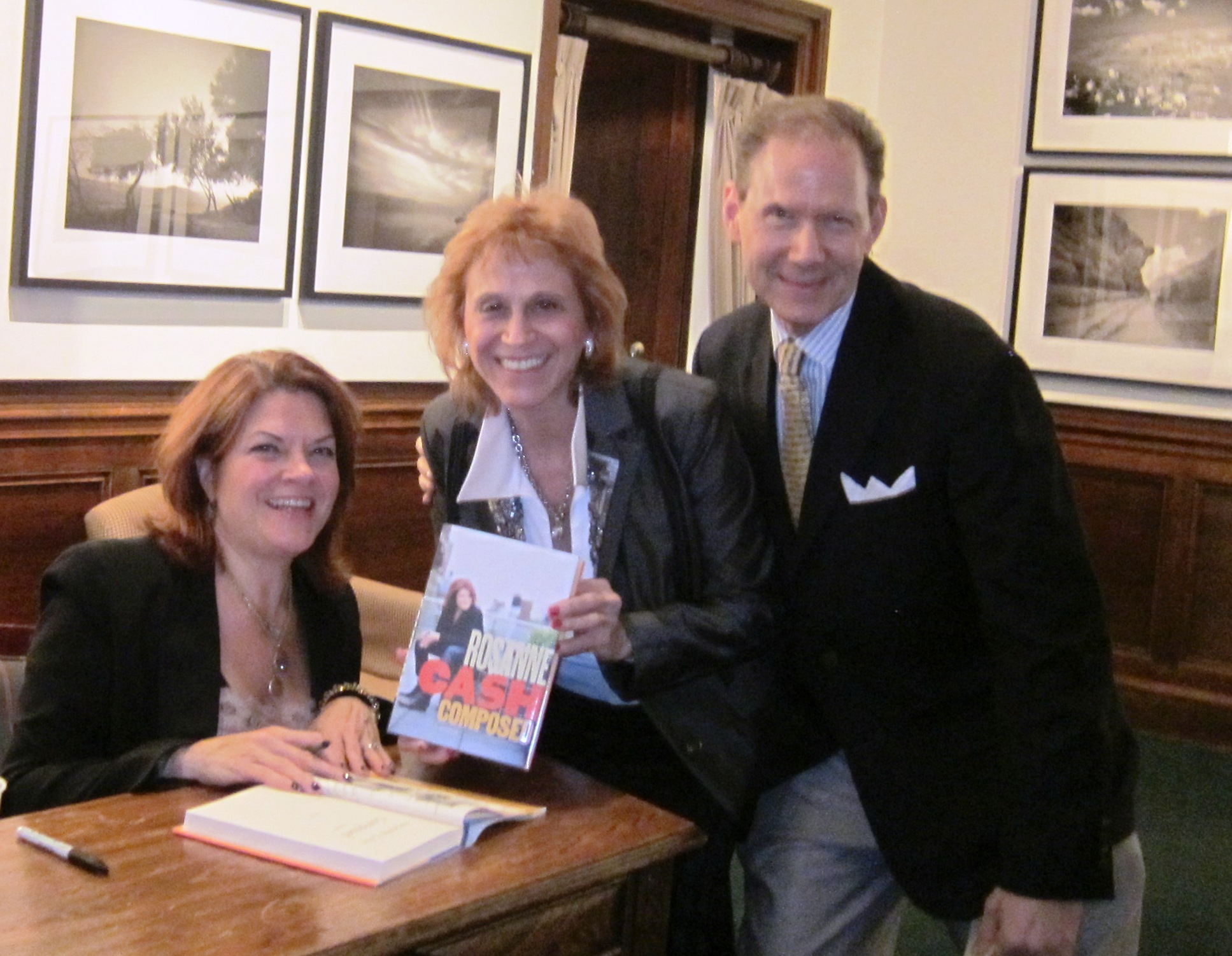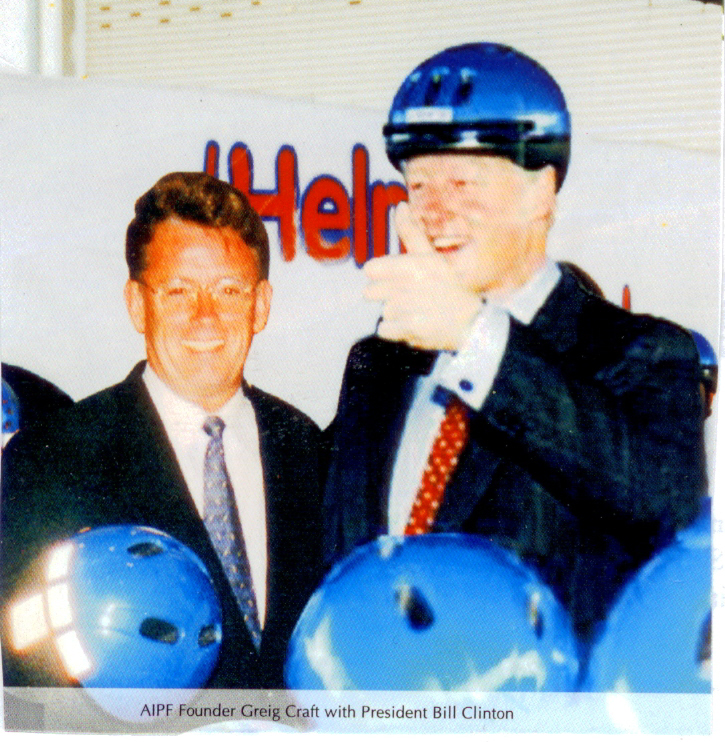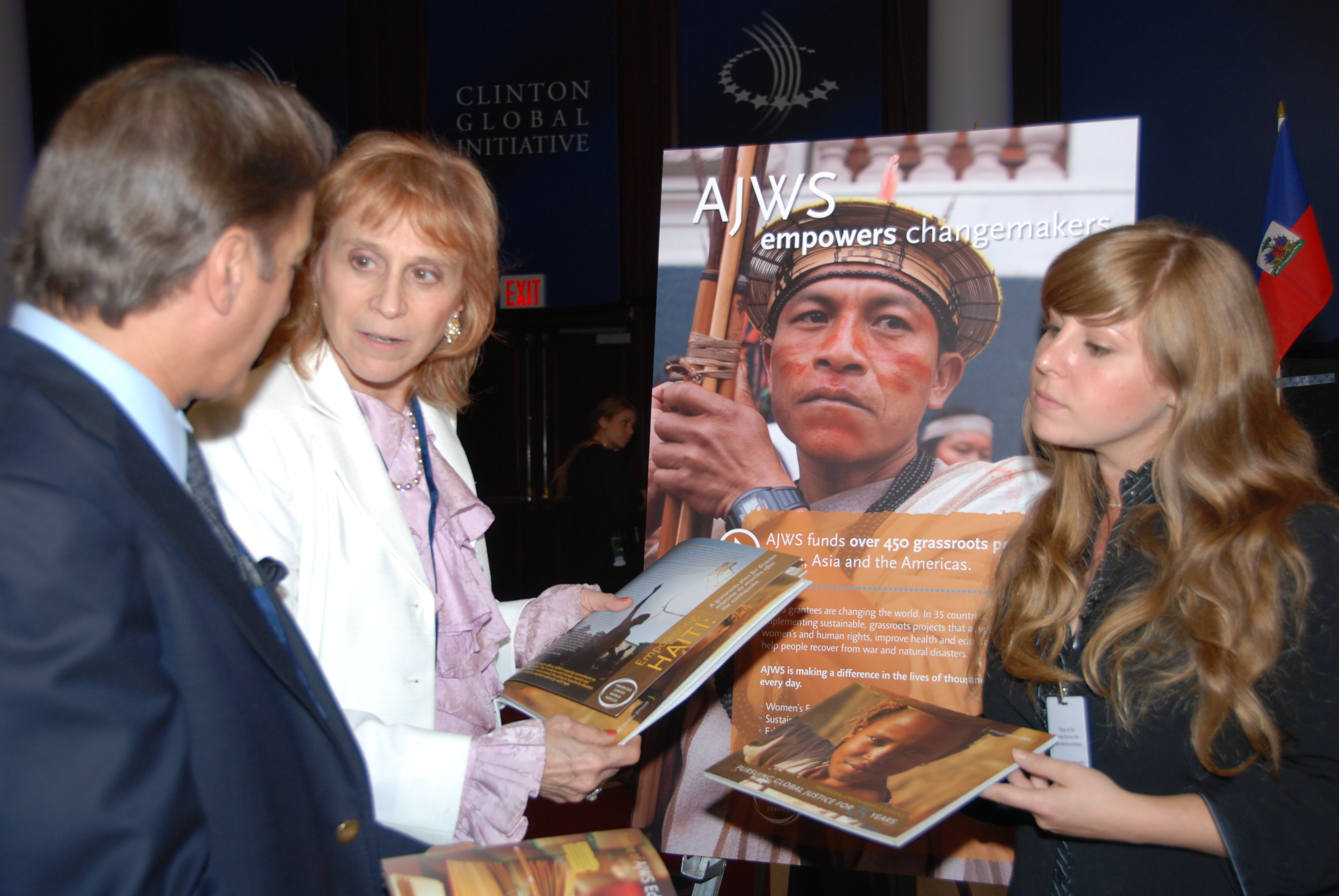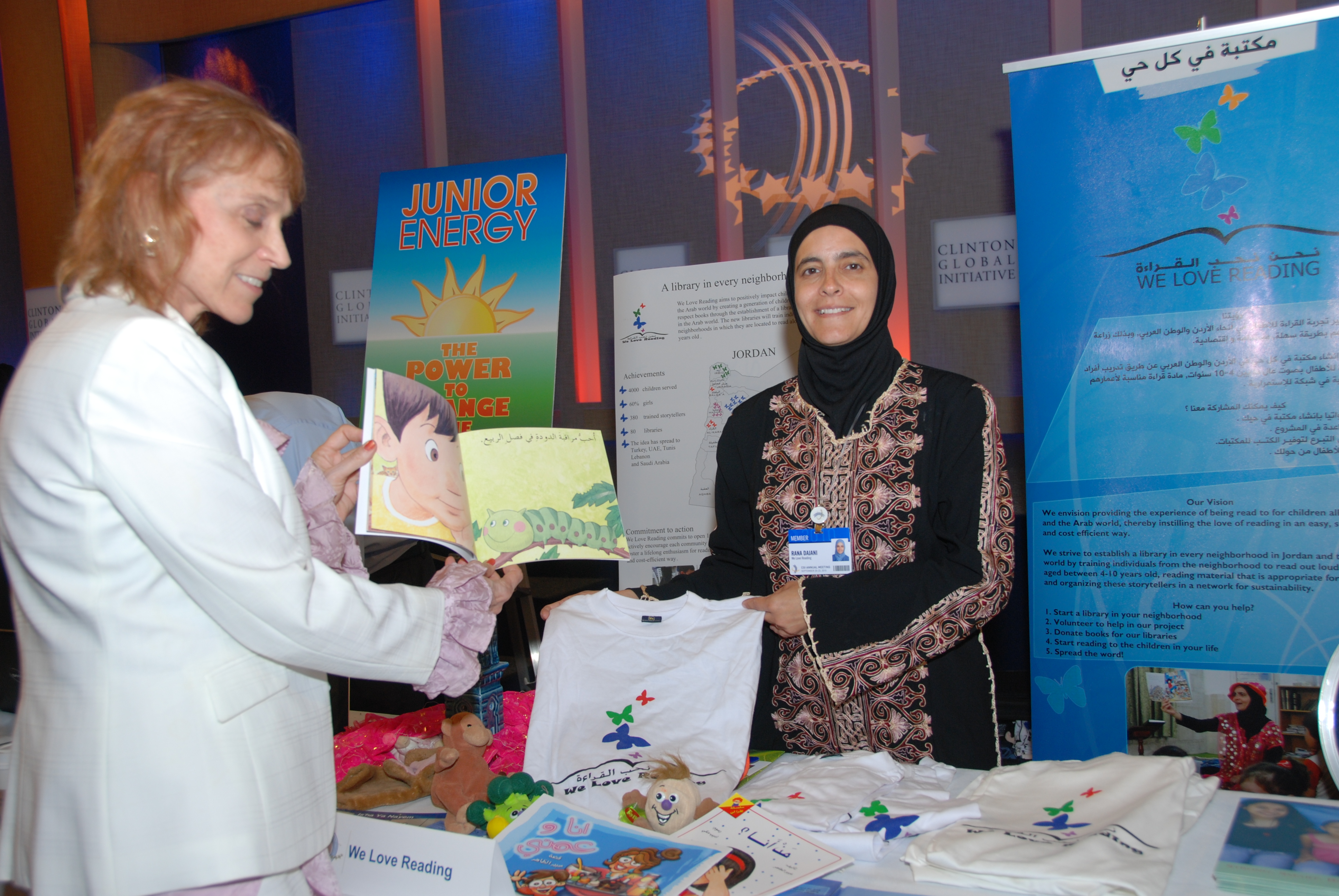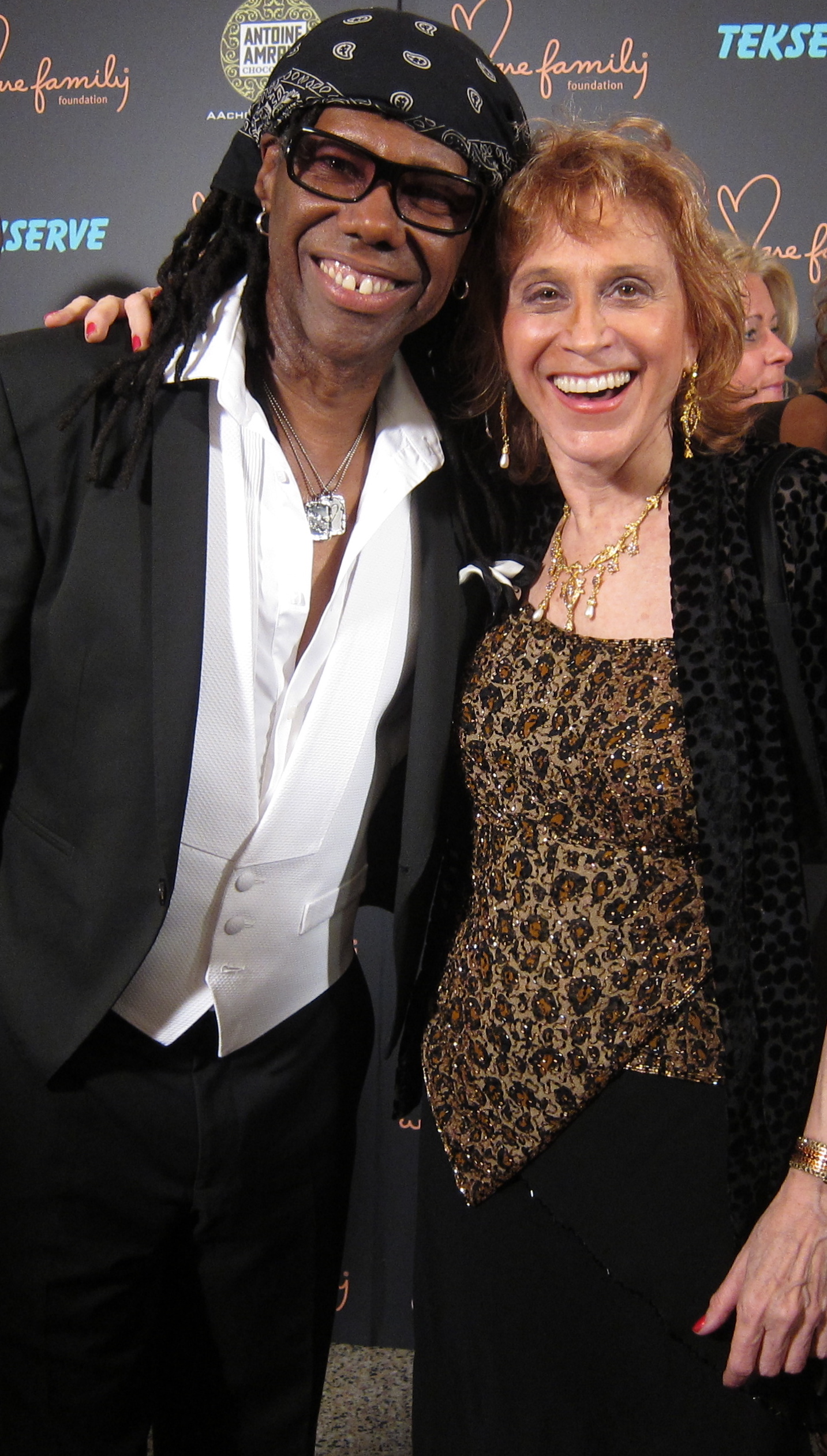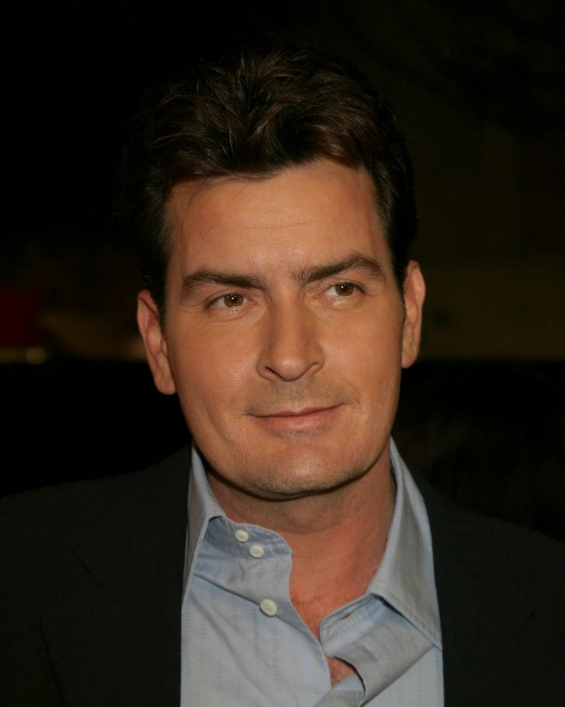A brave diminutive Nepalese woman was voted the CNN Hero of the Year 2010 in the star-studded Thanksgiving eve televised celebration of real people who make a difference in the world. The 10 men and women from around the world had been nominated and voted by the public on CNN’s website throughout the year. Hollywood celebrity and anti-slavery activist Demi Moore, was on stage to hug Anuradha Koirala, when she accepted her award and $100,000 from CNN.
Koirala, who said, “Human trafficking is a crime, a heinous crime, a shame to humanity…I ask everyone to join me to create a society free of trafficking. We need to do this for all our daughters,” Koirala said.
It’s a testimony to the fact that the world is paying attention to the problem of trafficking.
About 3 years ago at a screening at the United Nations, I had seen a riveting docu-drama about child sex trafficking called “Holly,” produced by Israeli-born producer Guy Jacobsen, who founded the Redlight Children Campaign to help fight child prostitution after being horrified while being solicited by little girls while wandering the streets of Cambodia, with a little one telling him, “I yum yum very good.” Posing as a client to film scenes of the underworld, the writer-director Guy Moshe had bodyguards and had to smuggle footage out, facing contracts taken out on their lives during filming.
I knew trafficking was happening in other parts of the world, but then one of my colleagues at the United Nations, Joan Levy (who co-developed the International Student Journalism program with me), told me that the problem is right here in America too. I interviewed Joan about the work of her NGO, End Child Prostitution and Sexual Trafficking of Children for a television series I hosted of UN NGO leaders: http://www.lightmillennium.org/unngo_profiles/joan_alevy_drjudy.html.
Then just recently, the issue of trafficking was front and center again at the United Nations, when Demi Moore and her husband joined the UN Secretary General for the formal launch of the Trust Fund for Victims of Human Trafficking at a panel on November 4, 2010 at the United Nations headquarters in New York City.
Moore described the plight of a 17-year young girl she met who had been plunged into sex slavery, “When she was 11years old, she was given a mandate to make $1,500 a night. If not, she was beaten.”
The story resounds for thousands of girls around the world trapped in trafficking, a global problem Moore and her actor/activist husband, Ashton Kutcher, are devoted to stop through the work of their DNA Foundation (the Demi & Ashton Foundation).
The Trust Fund is part of the new United Nations Global Plan of Action to Combat Trafficking in Persons, which was adopted by the UN General Assembly last July. The plan coordinates efforts of countries and organizations against trafficking which victimizes more than 2.4 million people, mostly women and children, in forms of exploitation like sex trade, domestic servitude, organ removal and forced labor, forced marriage or begging.
UN Secretary General G Ban Ki-Moon described the plight of the victims, that “they end up stranded, friendless, trapped in modern day slavery” and that “they may be seized by fear – fear that they will be treated as criminals even though they have been forced to engage in criminal acts.”
Other panelists included UN General Assembly President, Joseph Deiss, New York Times Pulitzer Prize winning author-journalist, Nicholas Kristof (co-author of “Half the Sky: From Oppression to Opportunity for Women Worldwide”), Yuri Fedotov, Executive Director of the United Nations Office on Drugs and Crime (UNODC) which is managing the Fund and UNODC New York office Chief, Simone Monasebian. In the audience were civil society leaders in victims’ rights, experts from academia and law enforcement, NGO representatives, and sex slavery survivors.
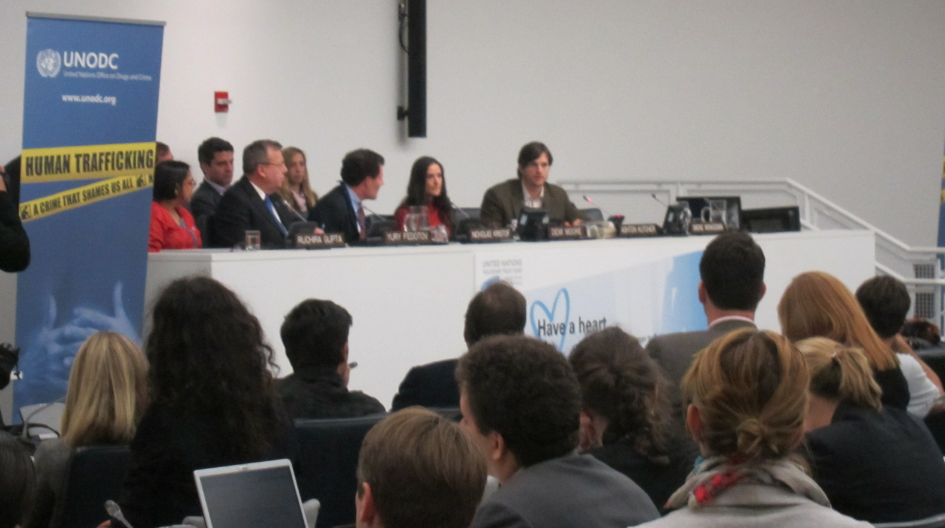
The stage was adorned by signage of the UNODC and the Blue Heart Campaign -- the Blue Heart is the international symbol against human trafficking and of solidarity with its victims. “Have a Heart for Victims of Human Trafficking” is the Trust Fund’s fund-raising appeal.
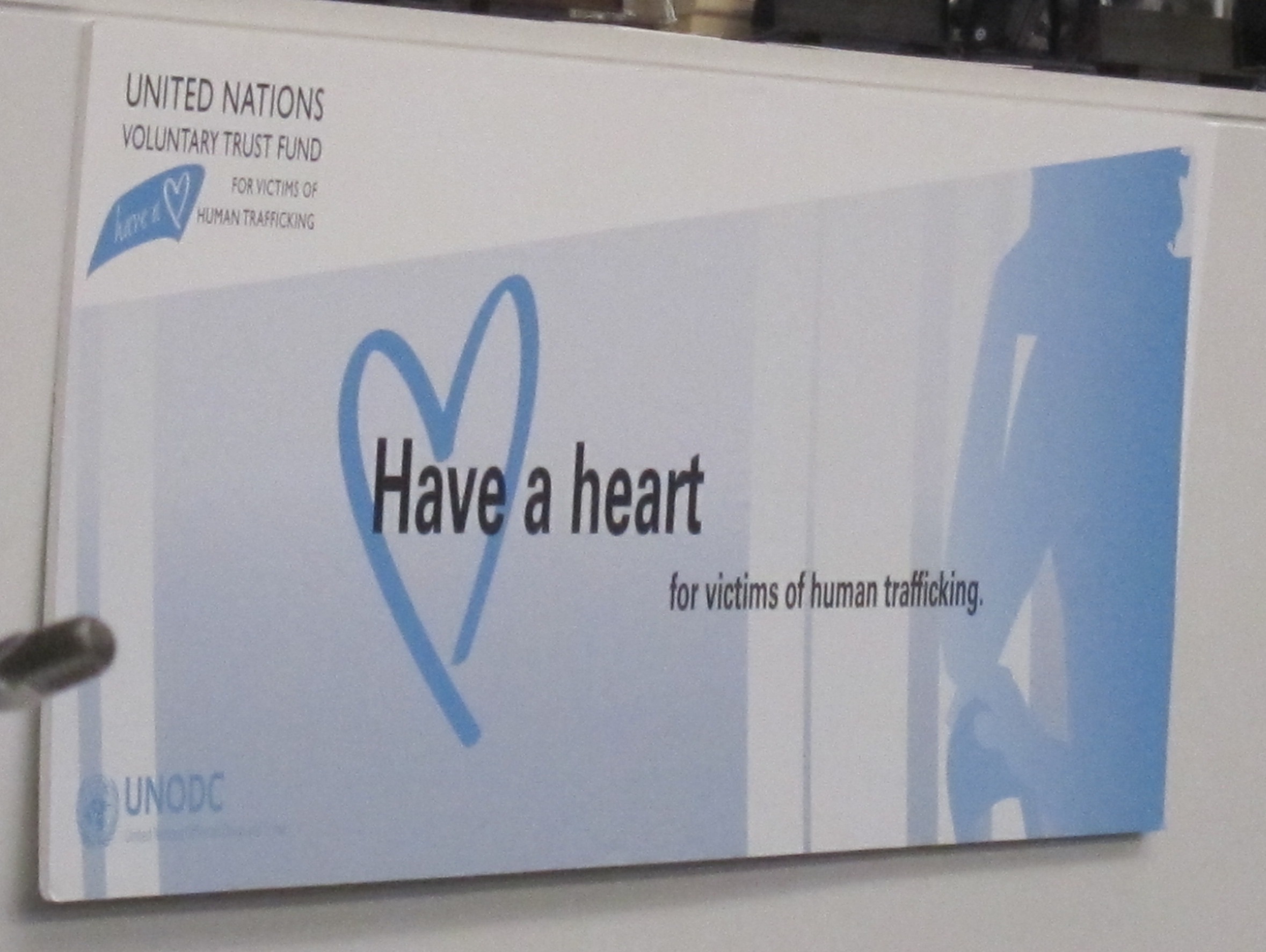
Fedotov noted the 3 P’s of the strategy: Prevention of trafficking in persons, Prosecution of perpetrators, and Protection of victims.
Identifying victims is often difficult, however, because of indoctrination and blackmail that makes them fear for their lives and their families.
Eradicating trafficking has to include governments, celebrities and others,”said Fedotov, quoting Ashton Kutcher that trafficking is “not cool.” Acknowledged were Ambassador Antonio Pedro Monteiro Lima of Cape Verde and Ambassador José Filipe Moraes Cabral of Portugal for their leadership in establishing the Global Action Plan, and UNODC Goodwill Ambassadors, actors Mira Sorvino and Nicholas Cage and painter Ross Bleckner, for their advocacy on behalf of trafficked victims.
Moore was introduced as being “a master on the internet” as “she has 6 million followers on twitter and the UN has only 125,000.” The audience laughed. Moore is well-known for her staring roles in films such as “Ghost,” “Indecent Proposal,” “A Few Good Men,” “Striptease,” “GI Jane” and last year’s “The Joneses.”
How did the Moore and Kutcher decide on this issue? Moore explained, “We didn’t think we had something we connected with…Then we met some girls who had been abducted….and could not just sit back…we spent a year educating ourselves…[we] became overwhelmed about the numbers of vulnerable children who were being robbed of their childhoods.”
Moore noted myths including that the girls want to do it; that sex slavery is such an invisible crime that people can say “I’m not seeing it.”; that it’s an epidemic with no cure; and that “the collective unconscious needs to change” to celebrate women and respect their bodies.
“It’s difficult to motivate people to have that dirty little conversation [about trafficking]”, Moore said, wondering about how you would sit around the dinner table and tell children about 3 year olds being raped by gangs of 20 men. Yet people have to know. “Drugs can’t talk, arms can’t talk, but people can,” she said. “They can be allies in trafficking if they know how the dirty industry works.”
Expressing sensitivity speaking to a UN audience, Kutcher apologized for only speaking in the English language, and for his impassioned speaking style, saying “I’m sorry I get so fired up…you’re not supposed to do that at these things.” The audience chuckled and a panelist said that he should be made a UN Ambassador.
Kutcher, well-known for his role in the Fox sitcom “That 70’s Show” and producing and hosting the popular TV show “Punk’d”, and lately in movies like “Valentine’s Day,” is now known for the phrase “Real men don’t buy girls.”
Once men hear about trafficking of girls from the average age of 13, Kutcher said, “suddenly it does not become sexy.” He added, “Men should be standing up against this crime…Men need to know that girls don’t grow up saying, ‘When I grow up, I want to sleep with strangers’” and that they have “an optionless life,” he said, urging, “Stop calling it ‘the oldest profession’ as if it were a job.”
Panelists acknowledged Sweden’s success in combating trafficking by putting pressure on the “johns” and making the business less successful. Prosecuting the customers (not the women), making anonymous johns “not so anonymous” and making male customers accountable, resulted in reducing the number of johns by 75% and reducing the numbers of commercial sex slaves by half.
“There is a difference between the desire for sex and sex itself…. Sex for itself is a wonderful thing [and a choice], but buying sex is not [and is different],” Moore said. She described pimps as “Daddy Day Care” offering promises of treats and trips to the mall, as well as love and the sense of belonging that troubled girls respond to and need.
Panelist Ruchira Gupta, founder of the NGO Apne Aap which promotes anti-human trafficking initiatives and women's rights in India, said UN pressure is necessary and that member states need to band together. Besides rescuing the women and providing shelters, the women need job training to establish an independent life and need “to be treated as human beings” who can make decisions.
Other solutions noted by panelists: Attitudes have to be changed, for example, that men have unbridled sex drives, and that giving out condoms solves the problem when in reality it protects the men from AIDS but does not protect the girl victims. Also, women need to be considered equal; “Equality is a campaign that needs to be launched.” Additionally, the “business model” of trafficking has to be affected, such that money is not made; in one example, an owner turned her brothel into a grocery store.
Donors in the audience spoke. The delegate from the government of Egypt announced that the First Lady of Egypt, Mrs. Suzanne Mubarak, has launched an initiative to “Stop Human Trafficking Now.” The delegate from Luxembourg pledged to donate money and the speaker from Malaysia pledged USD$5,000, saying that “While the amount is not big, it is a commitment.” Other donors are the Government of Qatar ($500,000) and Orascom Telecom.
U.S. Congresswoman Carolyn Maloney, who had just won re-election and whose district includes the United Nations, congratulated the UN on the Voluntary Trust Fund, and mentioned the importance of legislation. She noted that trafficking rates are high in the U.S. and that the American government is giving this crime priority, with the effort being bi-partisan despite new divides in Congress. That reminded on my friend Joan Levy’s NGOs’ efforts.
Two survivors of trafficking who founded NGOs to prevent their fate, were in the audience: Rani Hong, founder of the Tronie Foundation and Rachel Lloyd, founder of GEMS (Girls Educational and Mentoring Services). Lloyd expressed disappointment the panel did not include survivors, suggesting that “our voices are not as valid as other experts… but our voice is as valid.” The significance of her journey and her presence at the meeting was acknowledged from the chair.
For more information, see http://www.unodc.org/unodc/en/human-trafficking-fund.html and to pledge to the Trust Fund – by governments, foundations, organizations or individuals -- contact Ms. Simone Monasebian, Chief of UNODC New York Office, at 1-212-963-5631, or email monasebian@un.org.
 Thursday, December 23, 2010 at 05:28PM
Thursday, December 23, 2010 at 05:28PM 


